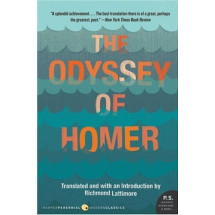Imitation is not the low-level, cognitively undemanding behavior it is often assumed to be, but rather -- along with language and the ability to understand other minds -- one of a trio of related capacities that are fundamental to human mentality. In these landmark volumes, leading researchers across a range of disciplines provide a state-of-the-art view of imitation, integrating the latest findings and theories with reviews of seminal work, and revealing why imitation is a topic of such intense current scientific interest. Perspectives are drawn from neuroscience and brain imaging, animal and developmental psychology, primatology, ethology, philosophy, anthropology, media studies, economics, sociology, education, and law. These volumes provide a resource that makes this research accessible across disciplines and clarifies its importance for the social sciences and philosophy as well as for the cognitive sciences. As a further aid to cross-fertilization, each volume includes extensive interdisciplinary commentary and discussion. The first volume considers possible mechanisms of imitation, including discussion of mirror systems, ideomotor and common coding theories, and the possibility of "shared circuits" for control, imitation, and simulation, and then takes up imitation in animals, with illuminating comparisons to human imitation. The second volume focuses first on the roles of imitation in human development and in learning to understand the minds of others, and then on the broader social and cultural roles and functions of imitation, including discussions of meme theory and cultural evolution, and of the pervasive imitative tendencies of normal adults and their relevance for understanding the effects of the media on human behavior.
I Mechanisms of Imitation 53
1 The Mirror Neuron System and Imitation
Giacomo Rizzolatti 55
2 Understanding Others: Imitation, Language, and Empathy
Marco Iacoboni 77
3 "Being Like Me": Self-Other Identity, Mirror Neurons, and Empathy
Vittorio Gallese 101
4 The Neurophysiology of Imitation and Intersubjectivity
Jean Decety and Thierry Chaminade 119
5 An Ideomotor Approach to Imitation
Wolfgang Prinz 141
6 Imitation by Association
Cecilia Heyes 157
7 The Shared Circuits Hypothesis: A Unified Functional Architecture for Control, Imitation, and Simulation
Susan Hurley 177
8 Commentary and Discussion on Mechanisms of Imitation 195
II Imitation in Animals 223
9 Detecting, Understanding, and Explaining Imitation by Animals
Richard W. Byrne 225
10 Insights into Vocal Imitation in African Grey Parrots (Psittacus erithacus)
Irene M. Pepperberg 243
11 Selective Imitation in Child and Chimpanzee: A Window on the Construal of Others' Actions
Andrew Whiten, Victoria Horner and Sarah Marshall-Pescini 263
12 Commentary and Discussion on Imitation in Animals 285
Bibliography for Volumes 1 and 2 303
Susan Hurley is Professor at the University of Warwick, and Fellow of All Souls College, Oxford.
Nick Chater is Professor of Psychology at the University of Warwick and Director of the Institute for Applied Cognitive Science.














